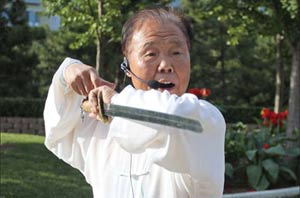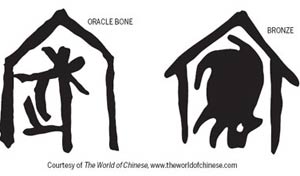Shanghai has most overseas residents
Updated: 2011-10-12 07:45
By Shi Yingying (China Daily)
|
|||||||||
SHANGHAI - Nine out of every 1,000 people living in Shanghai come from foreign countries or Hong Kong, Macao or Taiwan, making it the Chinese mainland city that is most densely populated with overseas residents, according to a recent report.
The report, released by the Shanghai Bureau of Statistics, said that of the 23 million people who have lived in the city for at least three months, about 208,300 are from outside the mainland.
Nearly 69 percent of them are foreigners. And the most numerous members of that group are citizens of Japan, the United States and the Republic of Korea.
The report was based on the sixth national census, which was conducted this past November. For the first time, the survey took foreigners into consideration.
|
 |
"The major reason Shanghai has so many foreigners from Japan, the US and the Republic of Korea is that we have more foreign companies from these countries in town," said Wang Daben, a professor at East China Normal University's China population and development research center.
Many Japanese and South Korean businesses, for example, have been established in the Hongqiao Commercial Zone in Shanghai, and, as a result, more Japanese and South Koreans have moved into that neighborhood, Wang said.
"Apart from that, the Japanese and South Koreans who have moved to the city, unlike many Europeans, have tended to take their families with them. That has been a result in part of both the cultural similarities and the physical proximity that exist between Shanghai and their home countries."
When the residents from overseas are asked why they came to Shanghai, most of them say for business or to find a job.
"Shanghai is the economic center of China and there are lots of business opportunities," said Maksy Palkiewicz, a 30-year-old Italian entrepreneur who came to the city five years ago.
"In a city like this, you can do so many things, and you're able to meet many important people."
"I think Shanghai is the new center of the world."
Palkiewicz said another reason he picked Shanghai rather than Beijing or Hainan province's Sanya was the city's blend of cultures.
"It's easier for a foreigner to become familiar with the local culture," he said. "In Shanghai, there's a good mix of cultures."
In a recent work project conducted with a Belgian chocolate shop in Shanghai, Palkiewicz sold more than 3,000 boxes of chocolate mooncakes, a sweet many Chinese eat to celebrate the country's Mid-Autumn Festival.
"The interesting thing is that even though I'm a foreigner, I can make products that Shanghai residences think are 'very local'," he said.
Of those whose views were collected in the Shanghai Bureau of Statistics' report, only 9.8 percent said they came to Shanghai solely to take up residence, according to the report.
Palkiewicz said he would like to stay in the city permanently but that buying an apartment there may prove a burden.
"For foreigners in Shanghai, buying property is not easy, and honestly speaking, the price of real estate is way too expensive," he said.
Beyond that, staying permanently entails submitting complicated legal documents and, if a person wants to own property, overcoming various difficulties related to real estate, said Christopher Palmer, a US citizen.
By 2008, Palmer had placed a down payment on a property in the city's Baoshan district and completed the paperwork needed to purchase it. But the bank refused to carry out the mortgage transaction because Palmer was in the country on an L visa, or a tourist visa.
"They sprung this on me after I had signed the contracts," said Palmer, who works as an English teacher in Shanghai.
"I understand they want to make sure I will stick around," he said. "But they had seen all the visas and they knew I had been here for several years and would not be leaving anytime soon."
In Shanghai and Beijing, foreigners are only allowed to own one residential property each.









